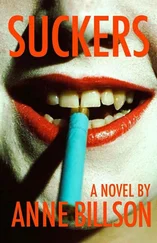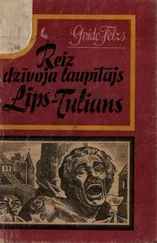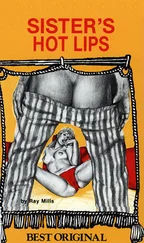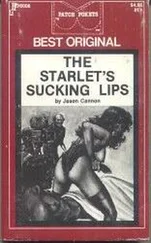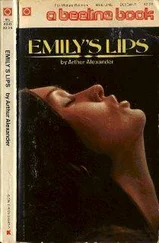'I'm sorry,' I said. 'I had no idea.' I was relieved when she put her sunglasses back on.
'Of course not,' she said.
'How did it happen?'
Polly Wilson uttered a chilly laugh. 'How do you think it happened?'
My brain was still reeling. 'A car accident? When you were a child?'
She sighed, as though she couldn't believe how dense I was being. 'Why did you come here to talk to me?'
'To find out about Robert,' I said.
And then I said, 'Oh no. He didn't.'
'I'm afraid he did.'
A wave of nausea had begun to spread slowly but relentlessly out from my stomach.
'I had no idea,' I said again.
Polly Wilson surveyed me calmly, apparently more than satisfied with the effect she was having on her audience of one. 'You're right,' she said. 'You have no idea.'
I said, 'So perhaps you'd better enlighten me.'
Polly related the details in a monotone, like an actress running through her cues for the benefit of a lighting technician. Robert had been going through a bad patch, she said. Sometimes she wondered whether Robert's entire life wasn't one long bad patch. Luck had nothing to do with it; Robert made things bad.
Ways of Killing Women had racked up yet another rejection slip. He'd had a letter from Automatic Quarterly complaining that his latest poems were so offensive they were unpublishable — 'I am not normally an advocate of censorship,' the editor had written, 'but I strongly believe this filth should be flushed down the nearest toilet.' And Robert had interviewed a distinguished lady novelist for the books pages of a national newspaper, but the finished article had been so vitriolic in its misogyny — the term dried-up old slag was repeated more than once — that his editor had been forced to spike it. It was like that all the time with Robert, said Polly. Opportunities came his way, but he invariably screwed them up: he would miss deadlines, or write articles so libellous they had to be suppressed, or get into fistfights with his editors, who would end up vowing through bloodied noses never to commission him again.
Sometimes she suspected him of doing it deliberately.
On top of that, Polly said, he'd been having nightmares so bad he would wake up screaming in the middle of the night, and nothing she could say would calm him down; he'd have to drink half a bottle of Scotch before he could go back to bed. Once or twice, she'd woken to find him in the bathroom, leaning against the washbasin and staring into the mirror with wide open but unseeing eyes.
He'd always had a tendency towards paranoia, but lately it was worse than usual. He was convinced they were out to get him. They were all the editors and publishers in town, who had formed themselves into a sort of masonic consortium which would stop at nothing to bring him down, because his work was subversive and threatened the status quo. He couldn't go out of the flat without being followed, but now he wasn't even safe indoors, because they had bugged the rooms and were spying on him through two-way mirrors. Now they were even transmitting subliminal messages in an attempt to brainwash him. When Polly had asked what kind of messages, he'd described the horrible things he'd seen in the bathroom mirror: black-eyed demons, faces sweating blood and pus, and, worst of all, a man slowly drawing a razor across his throat, grinning all the while.
'That really spooked me,' said Polly. 'And then one day, I made the mistake of asking a question — oh, something perfectly innocuous, such as Would you like a beer? — which distracted him from his work. The thing was, it was impossible to tell when Robert was working, because most of the time he just sat in his armchair and stared at the wall. But this time, apparently, he wasn't just sitting and staring, he was thinking, and I'd ruined his concentration just as he'd been teetering on the brink of a radical insight that would change our understanding of the nature of the universe. So he flew into a rage and slapped me.
'In a way, it was a relief. Many times before I'd thought he was going to hit me, but this was the first time he'd actually made contact. I packed my bags and went back to the flat I'd been sharing with my sister before I'd moved in with him.
'My room was just as I'd left it, and there were still traces of Robert there, things I'd found eccentric and endearing before I'd got to know him better. I should have chucked them straight in the bin, but instead I made the mistake of sending that letter, the one you read, though I have no idea why anyone should send it to you now. What kind of sick bastard would do something like that?'
What kind of sick bastard indeed? I had my theories, but didn't like to interrupt Polly Wilson's stream of consciousness.
'I expected an apology, at the very least,' she said, 'but there wasn't so much as a peep from him until the day he turned up at the darkroom, bang in the middle of the afternoon, and invited me to dinner. It would be an occasion, he said, that would mark the end of our romance but signal the beginning of a deep and lasting friendship.'
'He was drunk, of course, which put me in an awkward position; I knew it would take only a careless word from me, and his amiability would tip over into a childish tantrum, and if he threw one of those in the darkroom, it would end with me being given my marching orders. His manner was too loud for our surroundings as it was; he was already attracting glances from some of my workmates. He kept pulling a hip flask from one of his jacket pockets and slurping out of it with exaggerated lip-smacking noises, wiping his mouth with the back of his hand. He offered it to me, then to some of my colleagues, who shook their heads and went about their work with frozen smiles.'
'I didn't want to go to dinner with him and said so, but he began to pace up and down, sighing ostentatiously, until I recognized the warning signs and asked when he wanted me to go round. He said right now and, when I said that wouldn't be possible, his eyes began to bulge, and for a moment I thought he was going to explode. But then he sort of simmered down and said OK in a surprisingly calm manner.'
Polly looked pensive. 'I should have told him to get out, but I wanted everyone to stop staring at us, and I wanted him to leave without making a scene. I should never have agreed to go round, but I walked straight into the trap. I walked into it through fear of losing my job. I walked into it out of embarrassment .'
Polly was staring down at her hands, studying her fingernails with the concentration of someone who was trying to decide whether it would be better to varnish them or, what the hell, pull them out with pliers. She might as well have been talking to herself, but I didn't care. If she wanted to pretend I wasn't there, that was fine with me.
'So I went back,' she said, 'just for that one evening.'
'Worst decision I ever made in my life,' she added.
'The fundamental fault of the female character is that it has no sense of humour,' declared Robert.
Polly didn't bother to reply. He was just trying to wind her up. Just because she hadn't laughed at his joke. Why do women have legs? She'd tried to smile politely, but it hadn't been funny. In fact, she'd found it offensive.
On the way to Hampshire Place that evening, she'd cursed herself for having been suckered into this unnecessary ordeal. Had there been anyway of backing out, she would have taken it, but she didn't relish the prospect of Robert making another of his unannounced visits to the darkroom and flying into a rage.
Even so, the rages were preferable to his other ploy, which was breaking down into loud blubbery tears and threatening to kill himself. Polly would always give in, not because she believed he would actually carry out his threats, but because she couldn't bear being witness to such unseemly displays of emotion. Afterwards, when the police asked if he'd ever talked about suicide she'd had to say yes. She'd tried to explain it had meant nothing, it had had no connection with what had ultimately happened — which was of a different order altogether. But the police, of course, had failed to grasp the distinction.
Читать дальше

